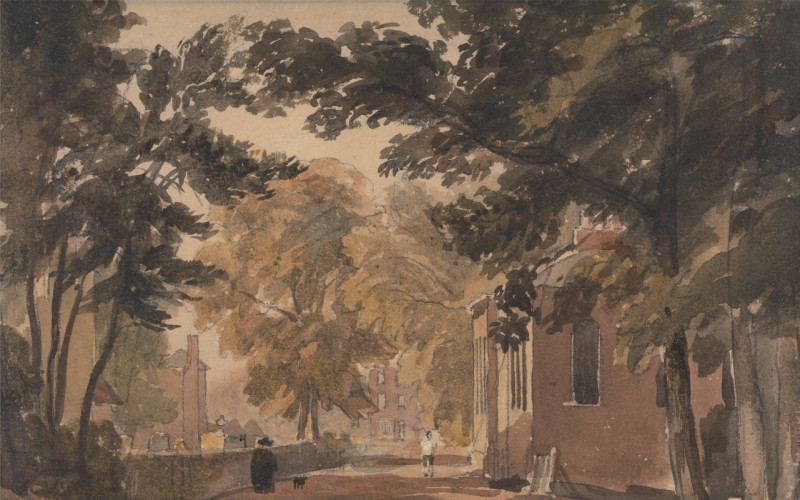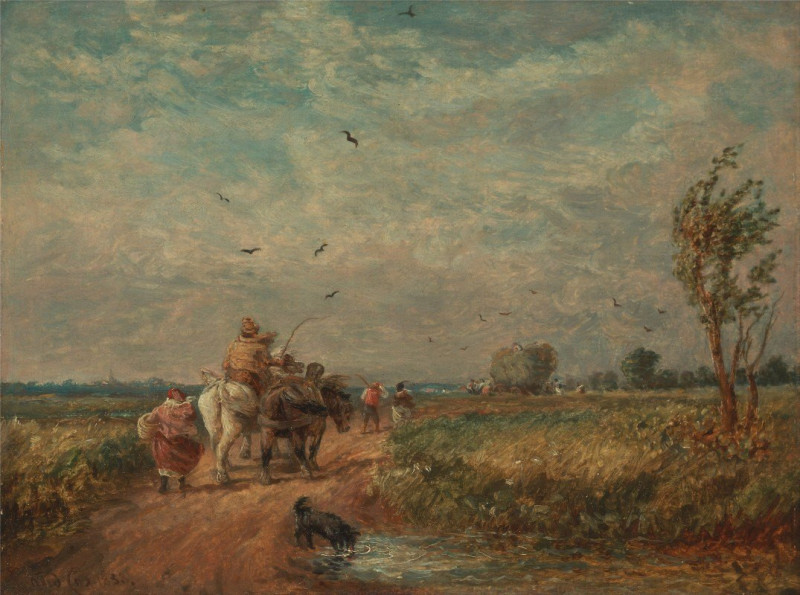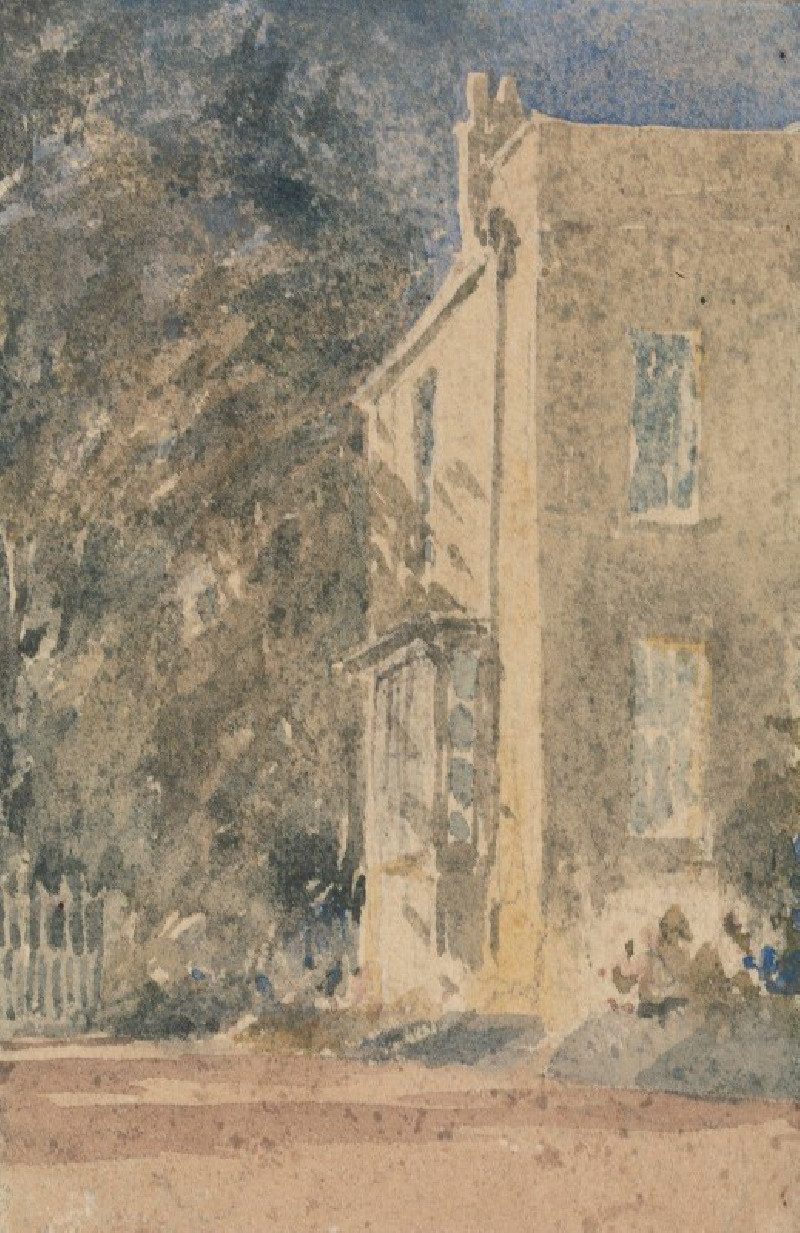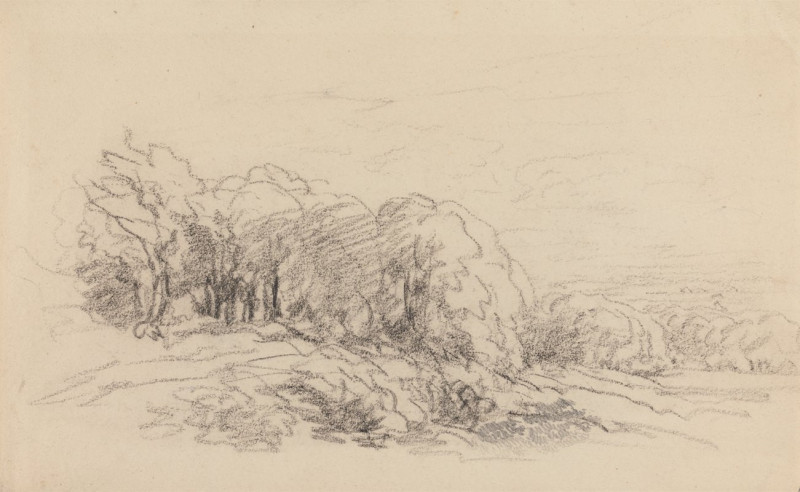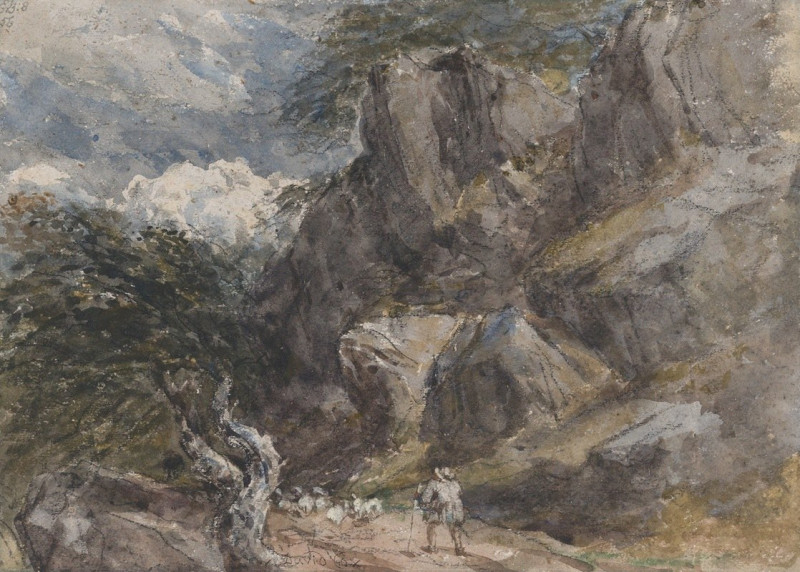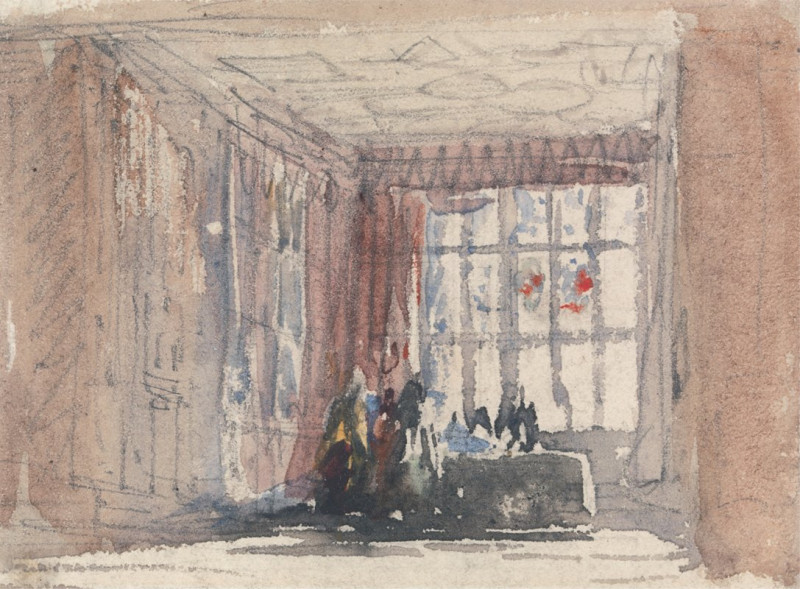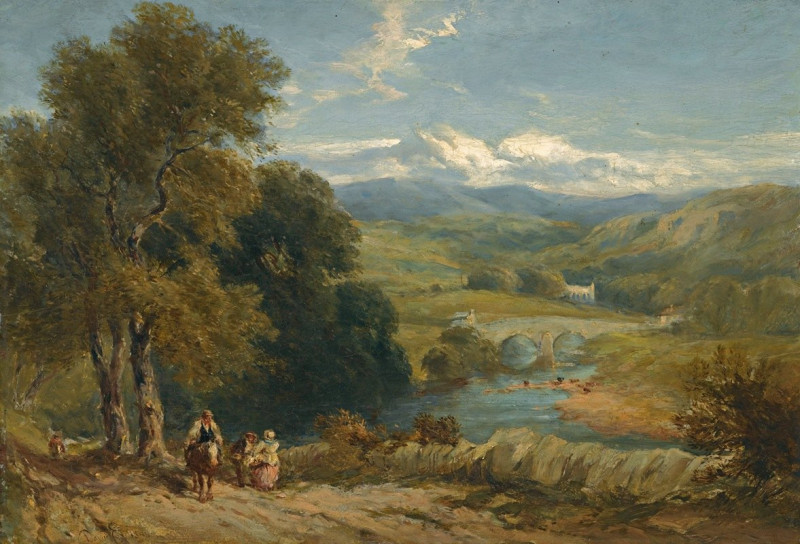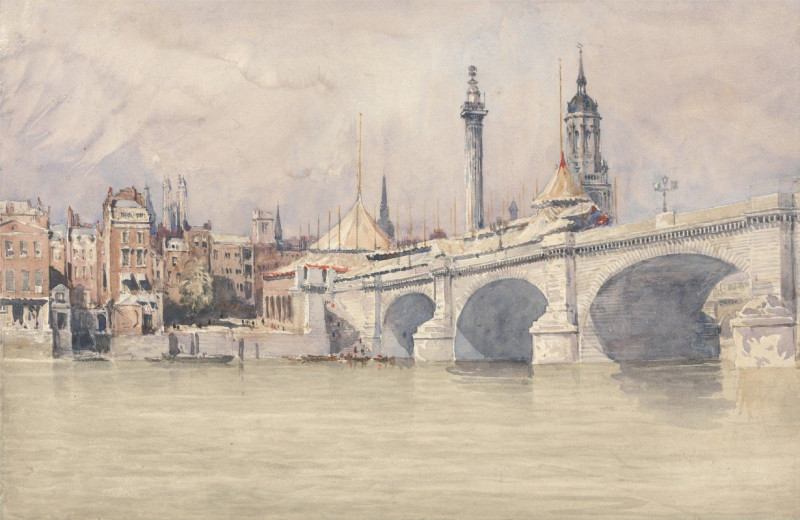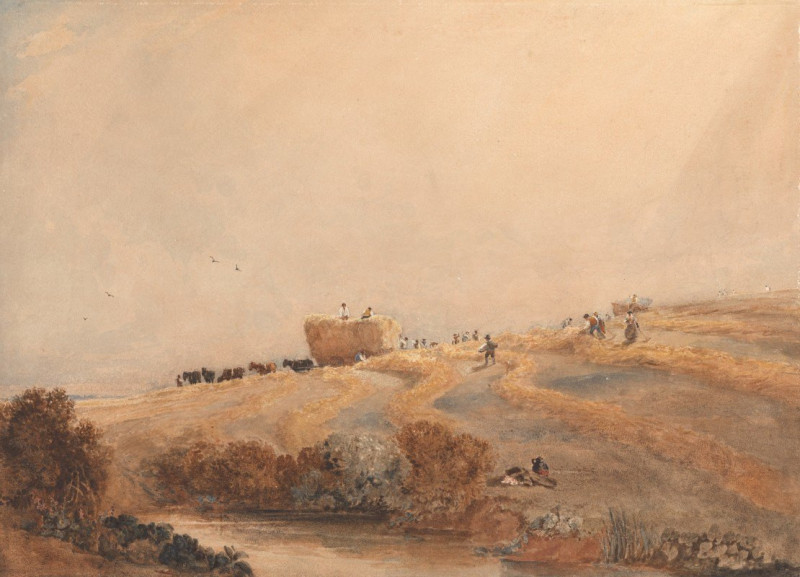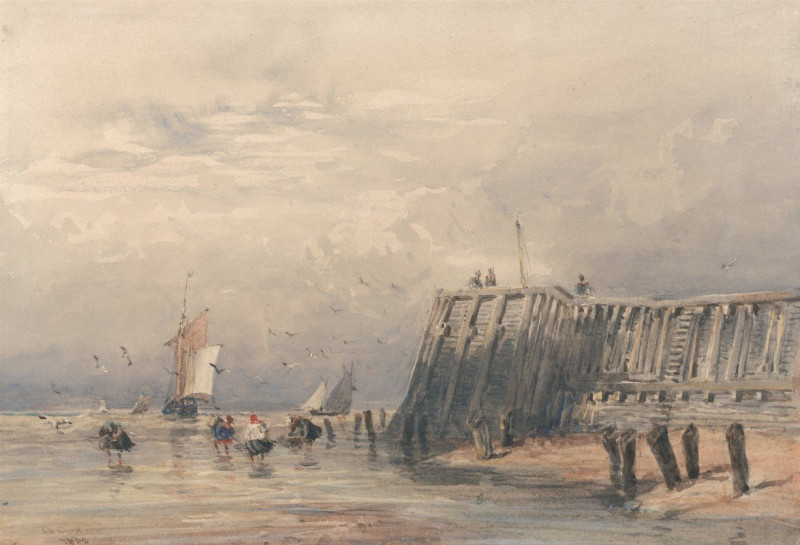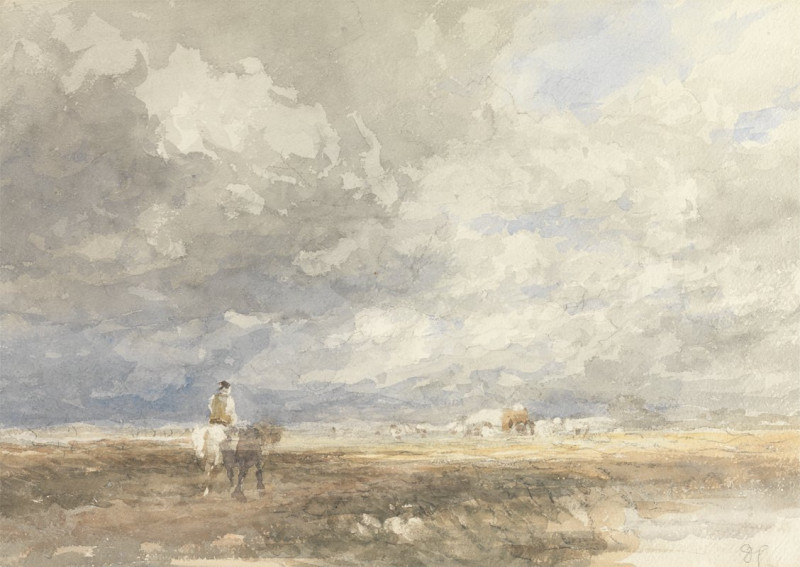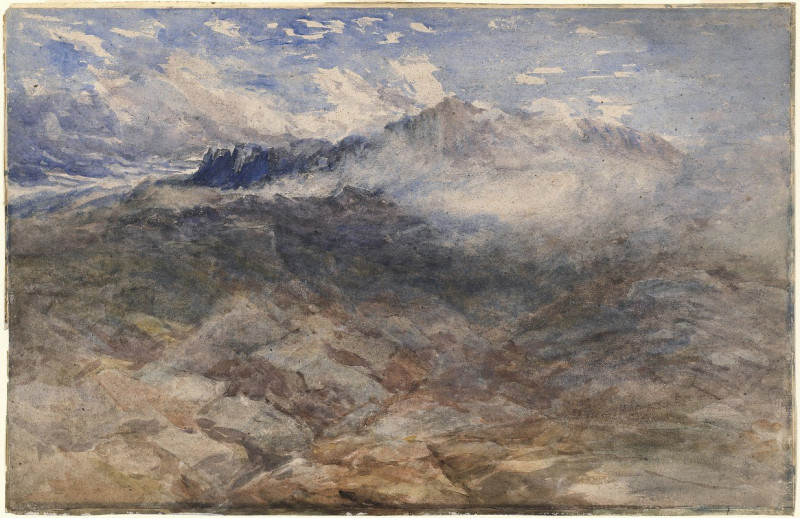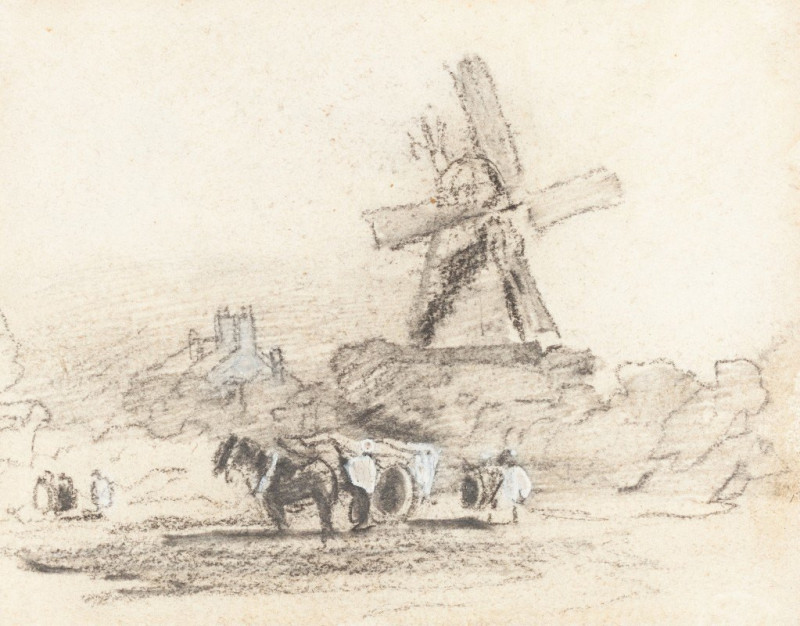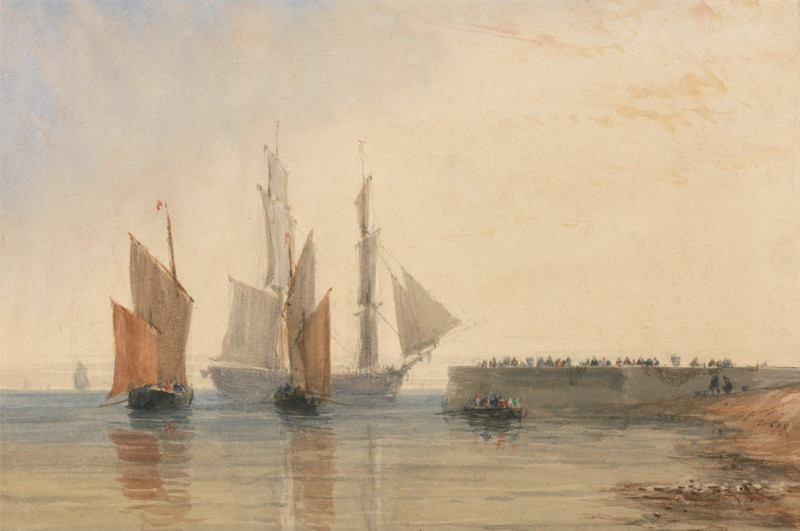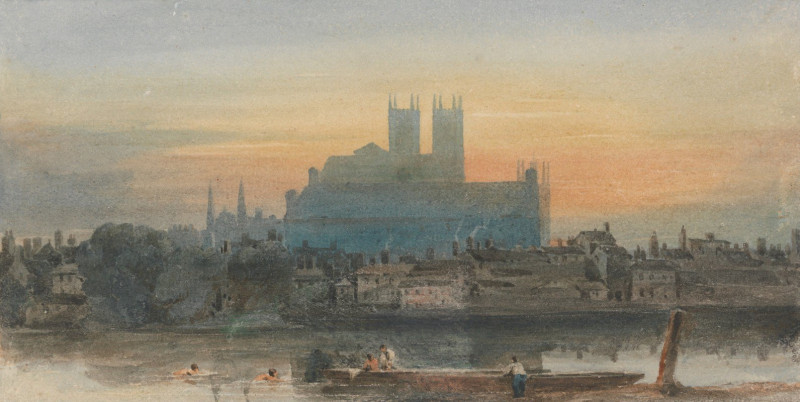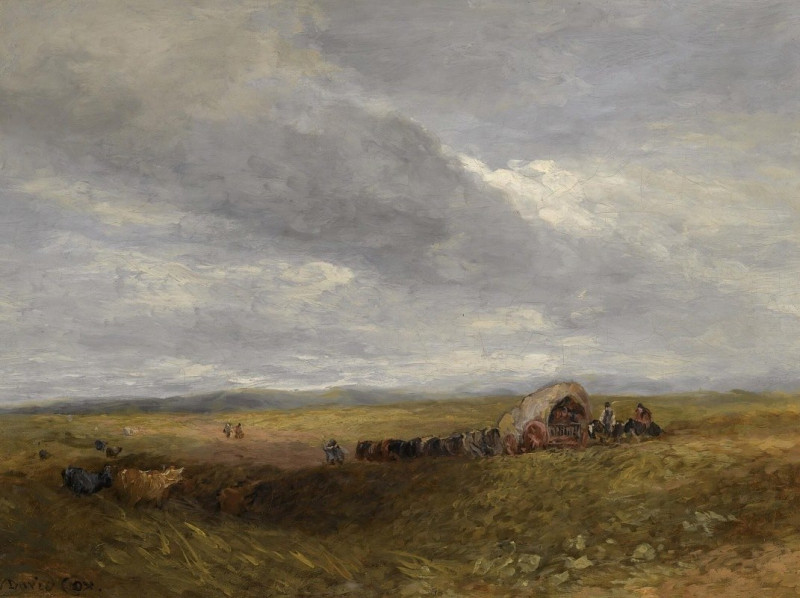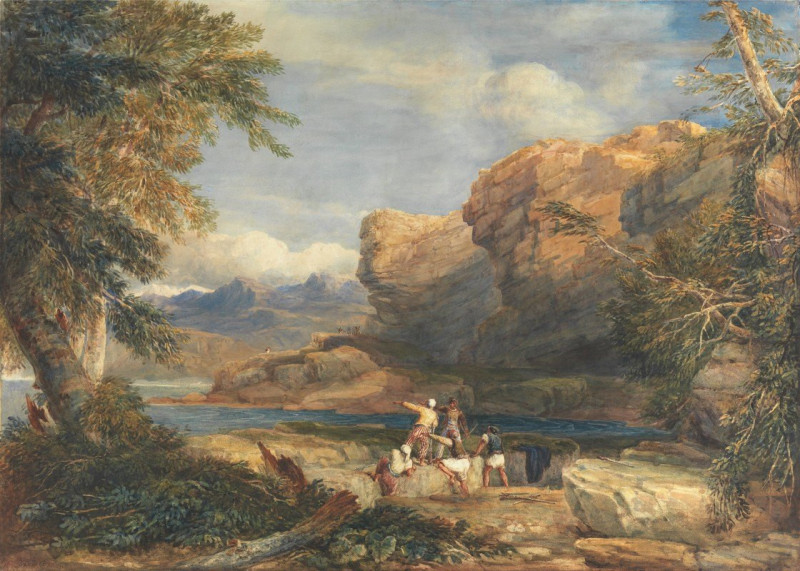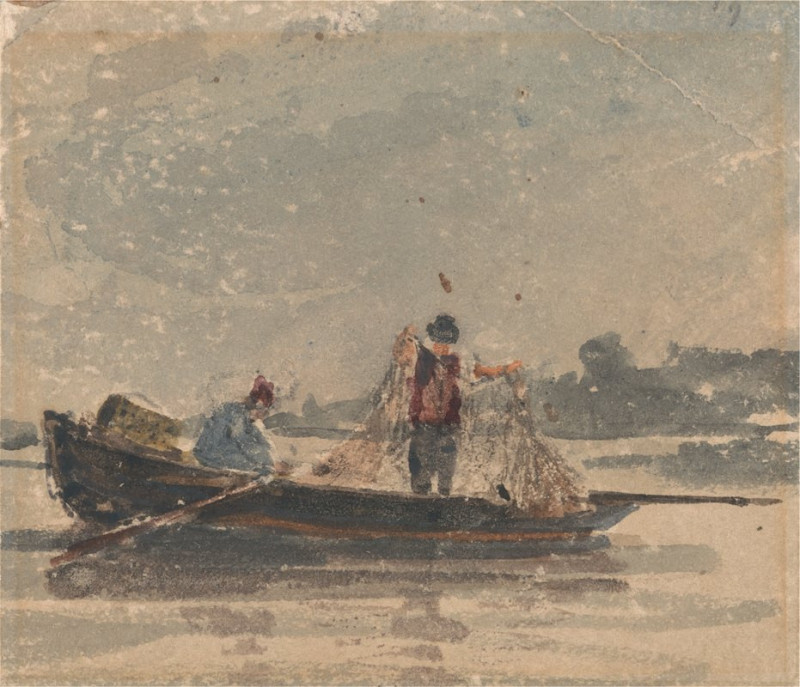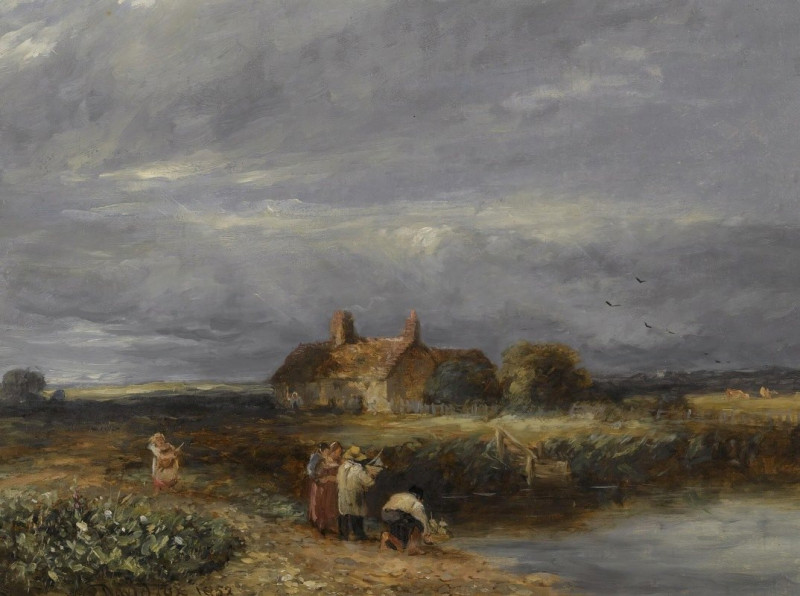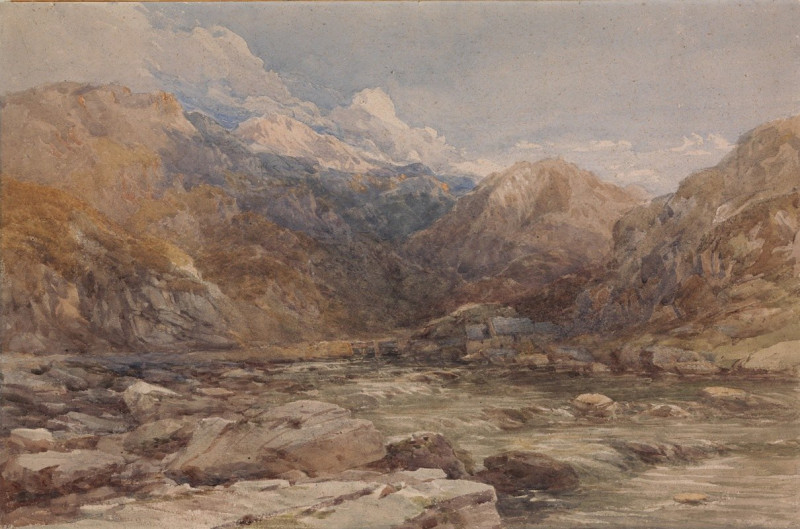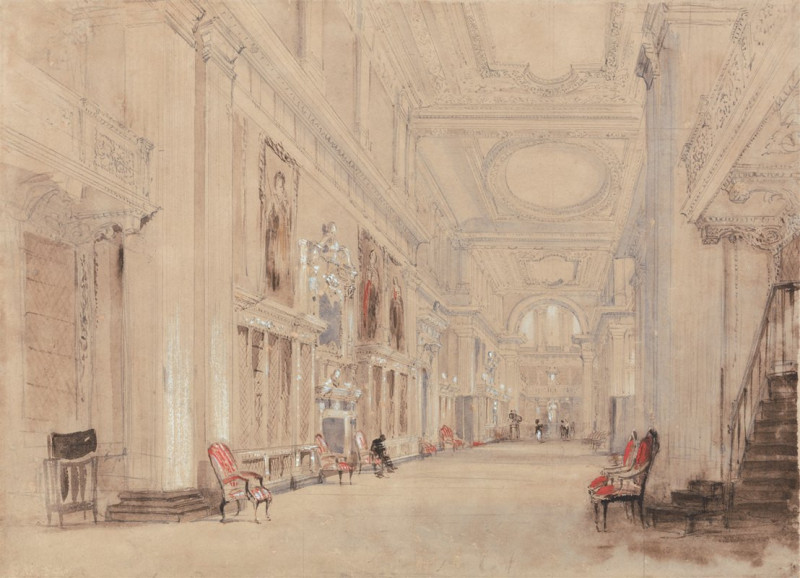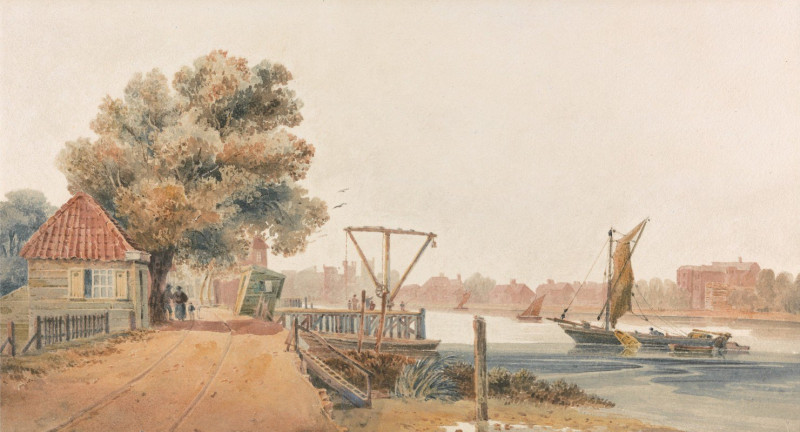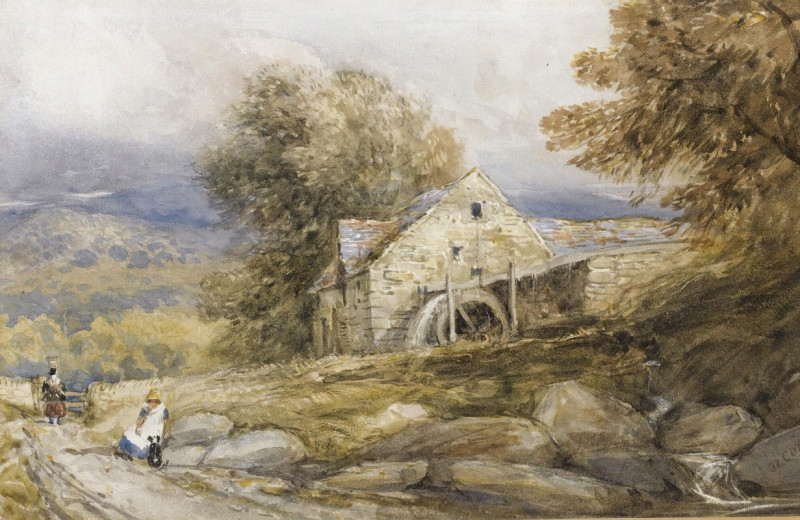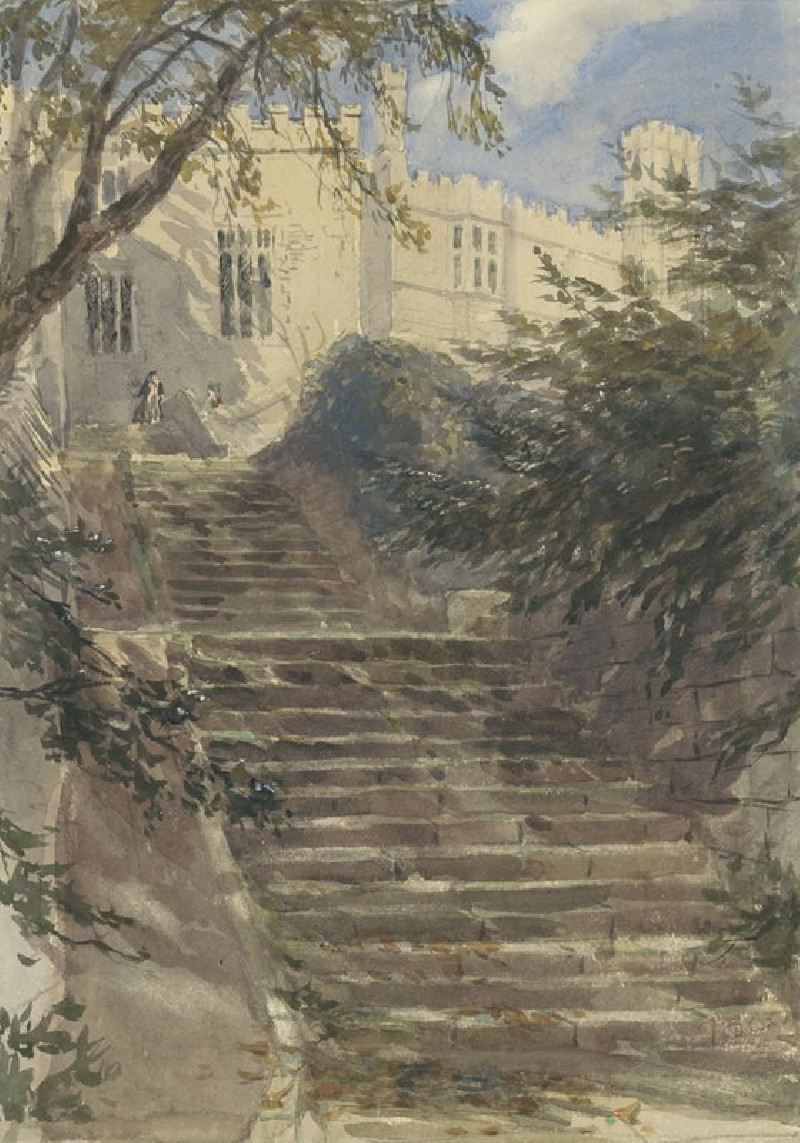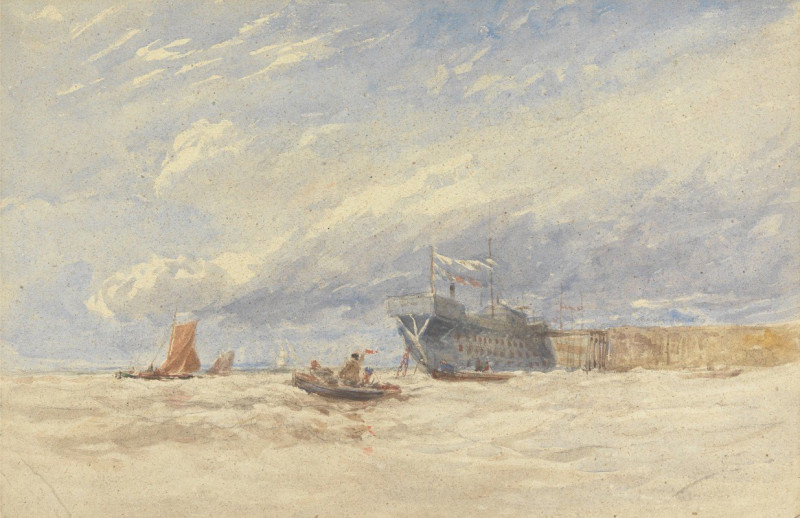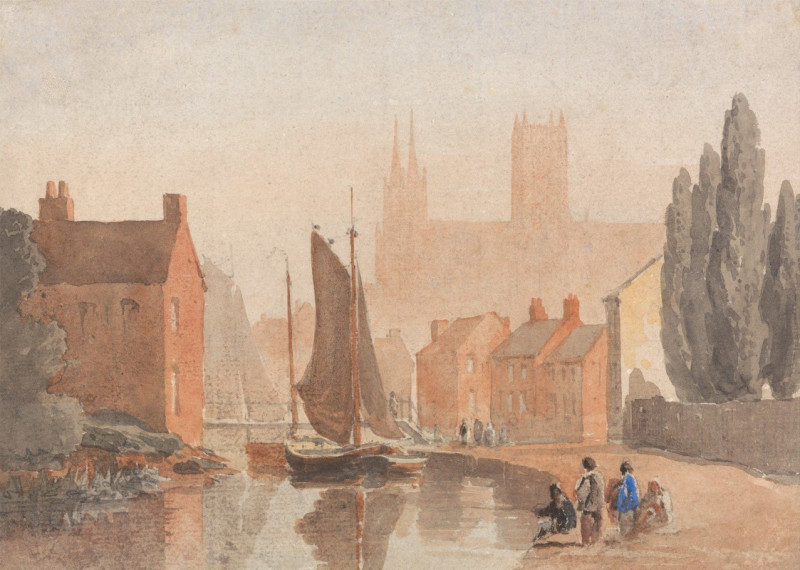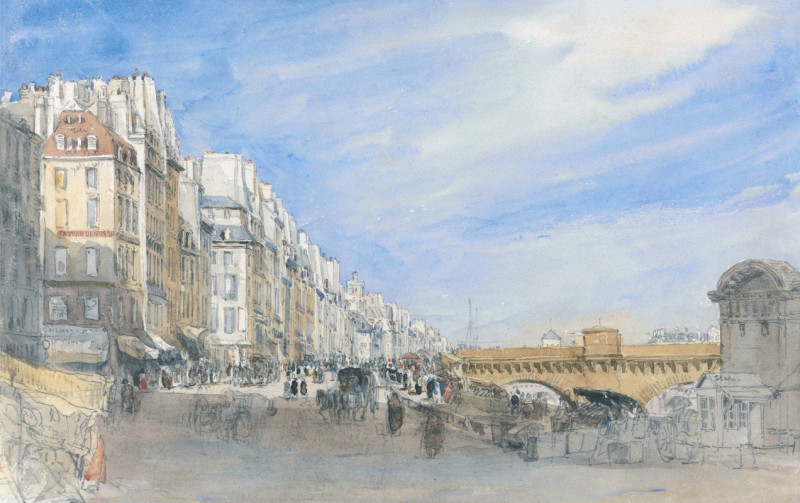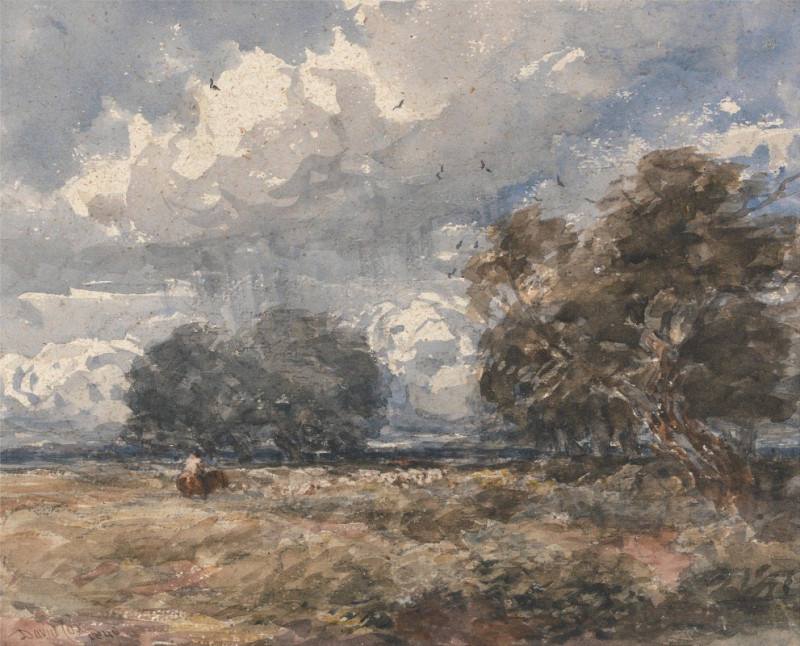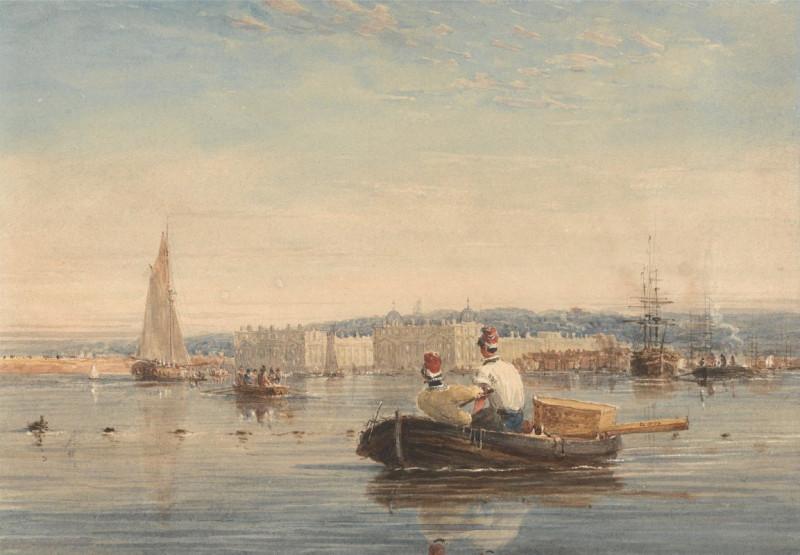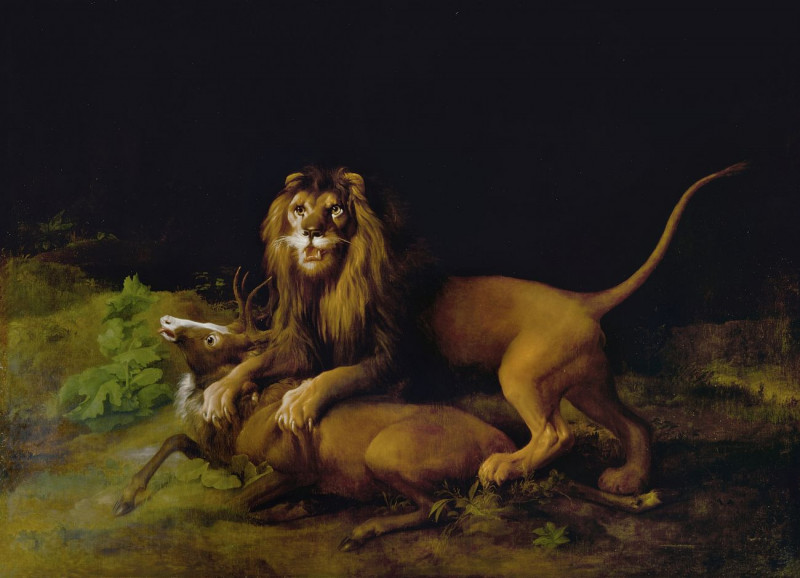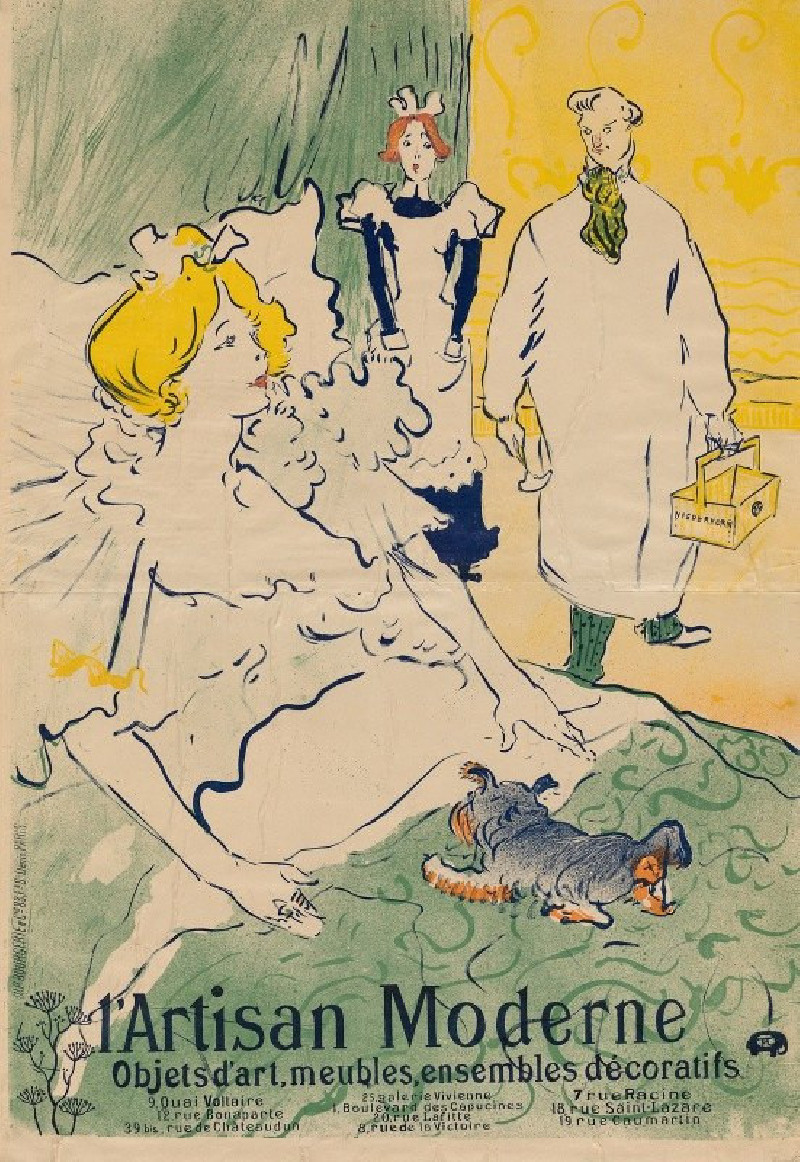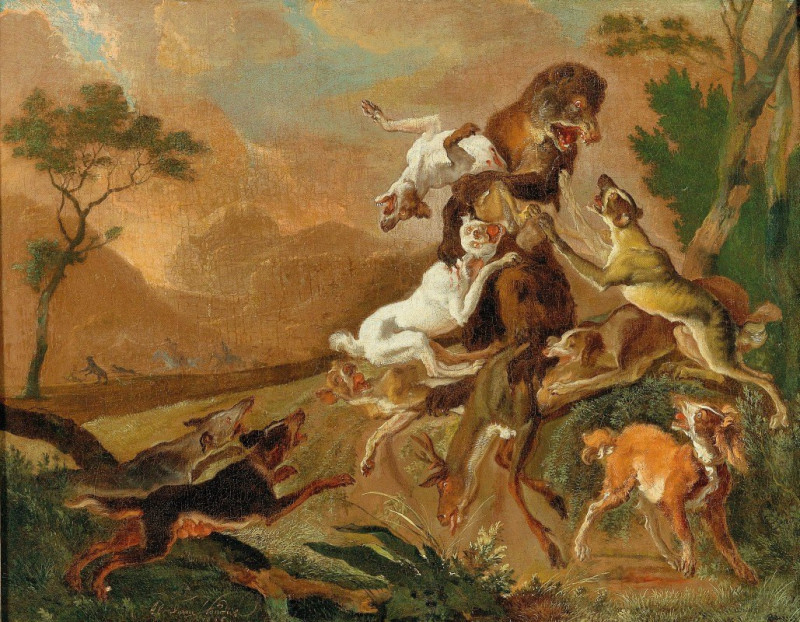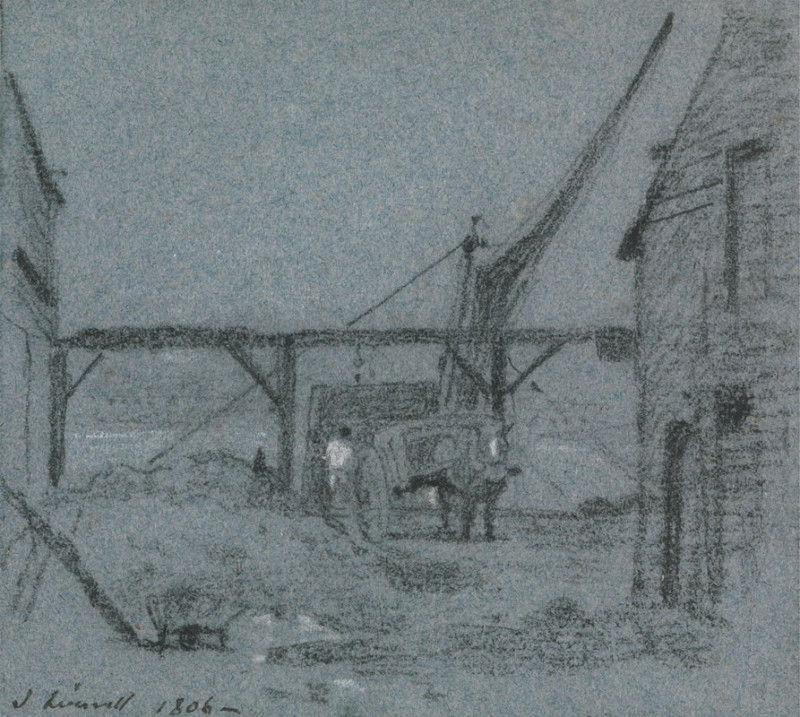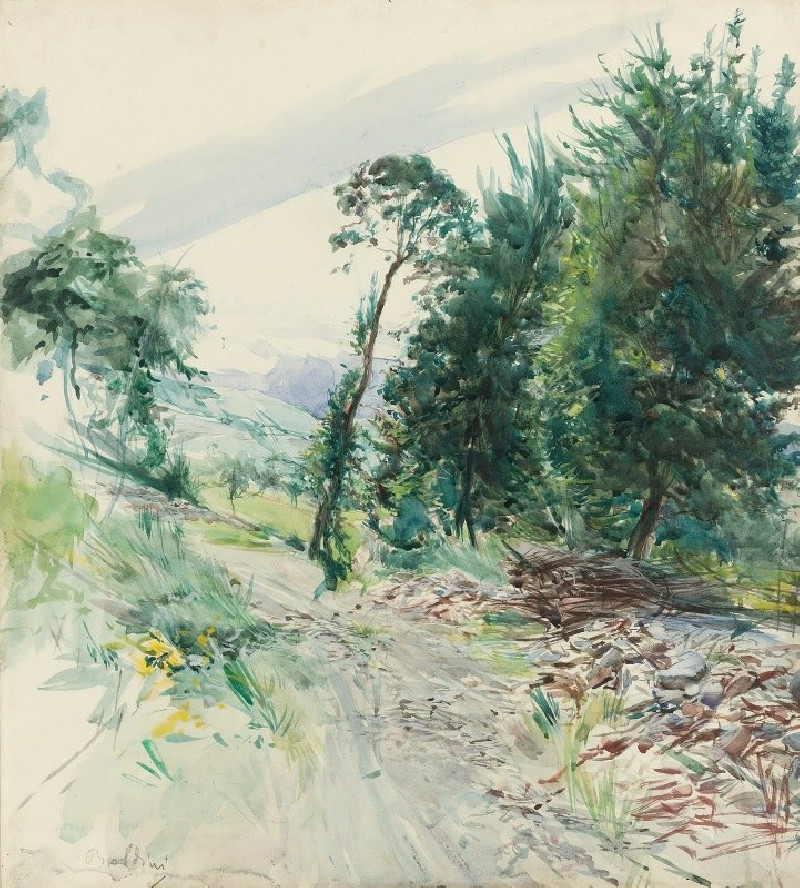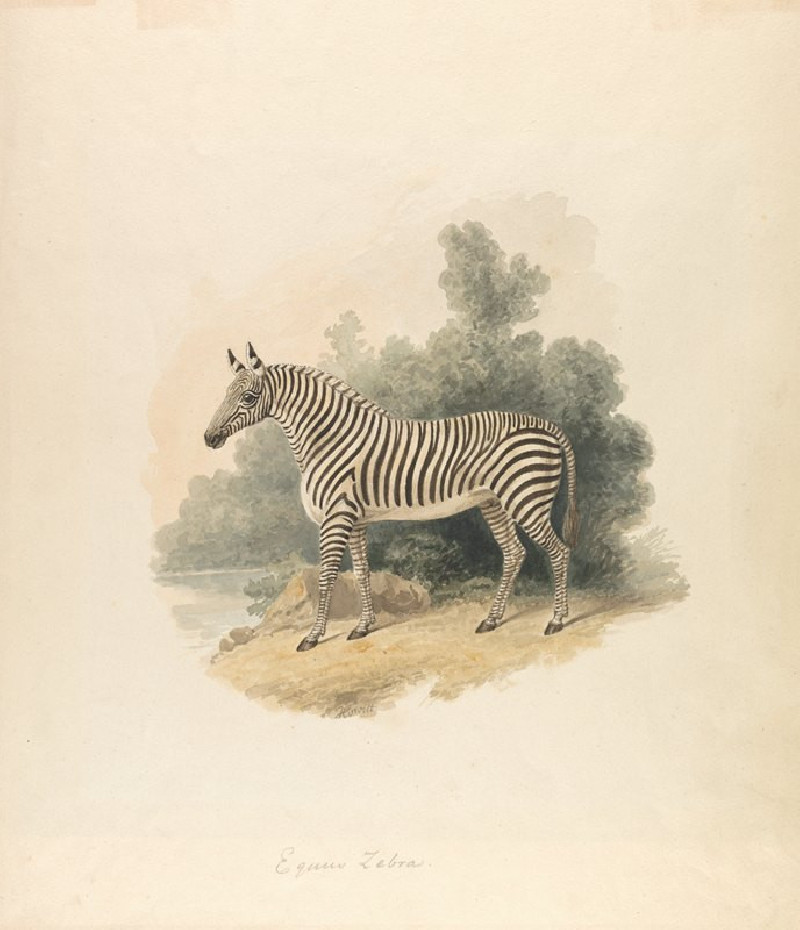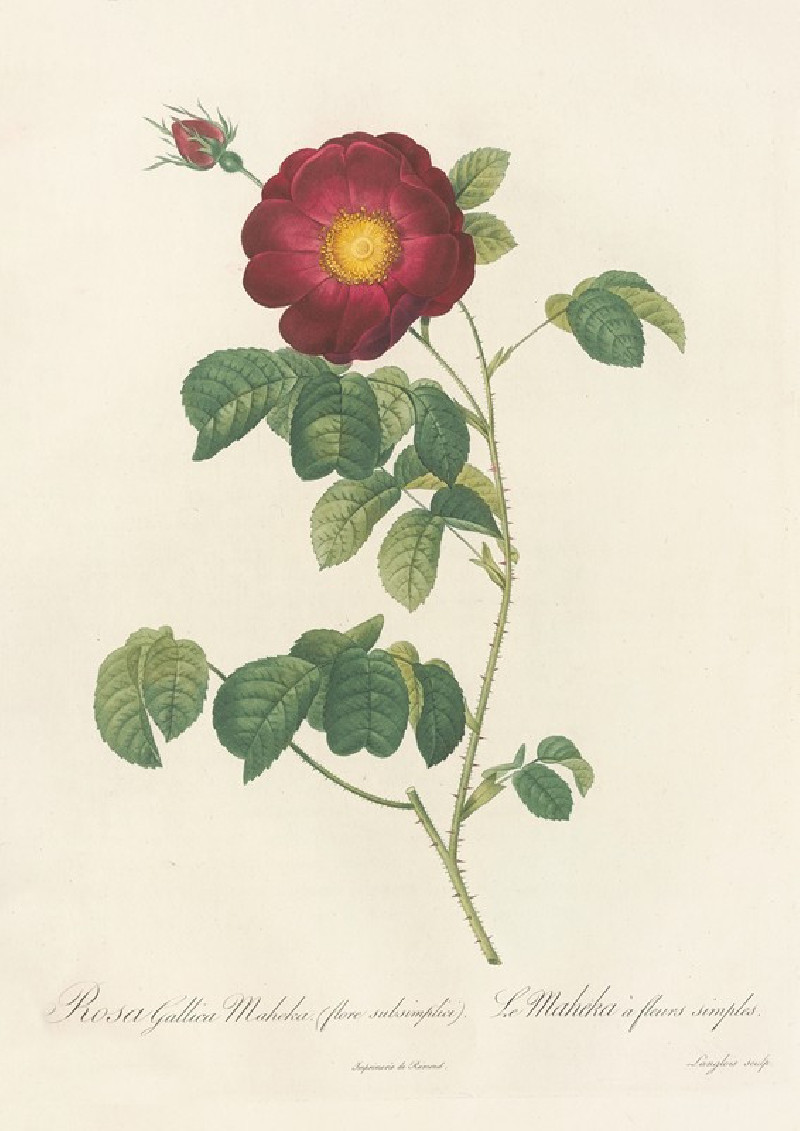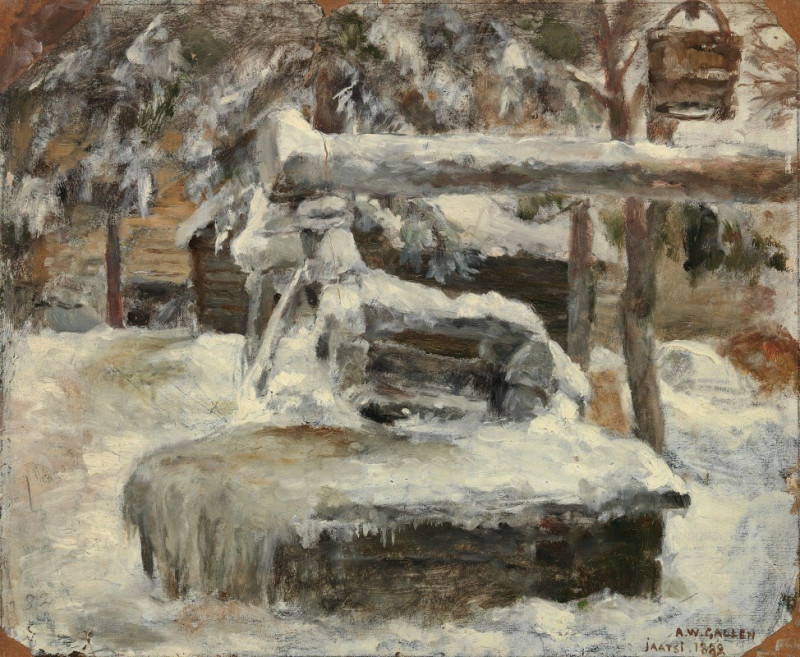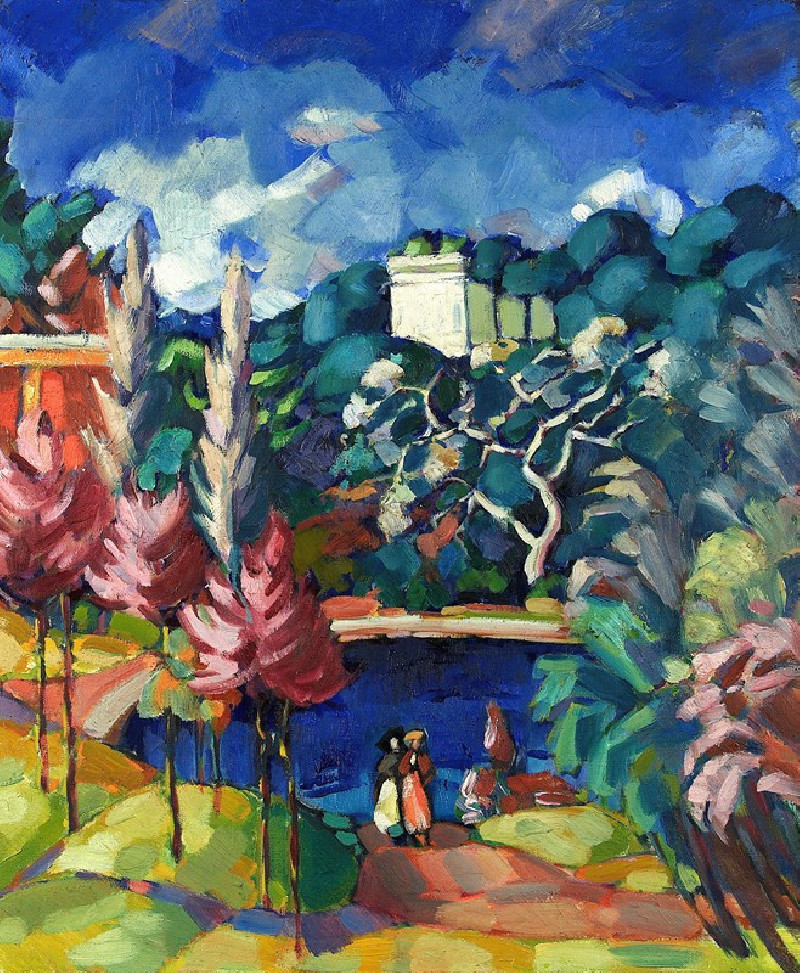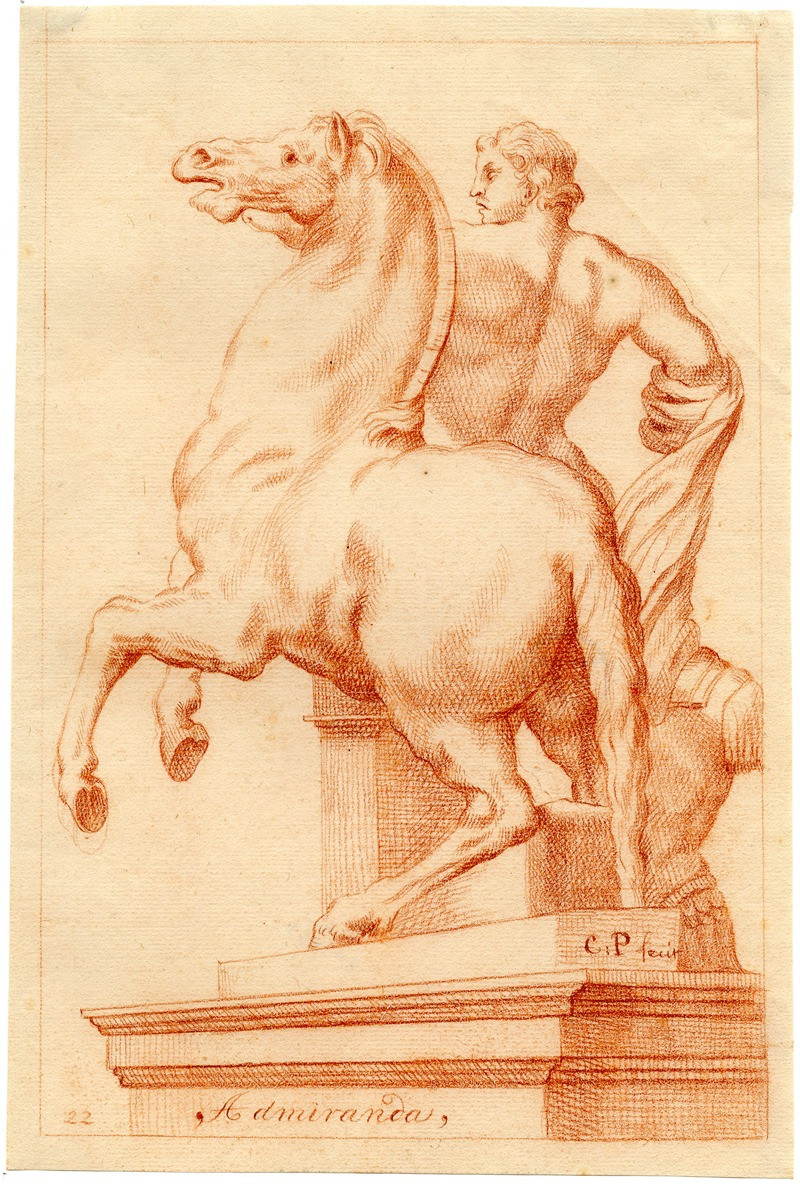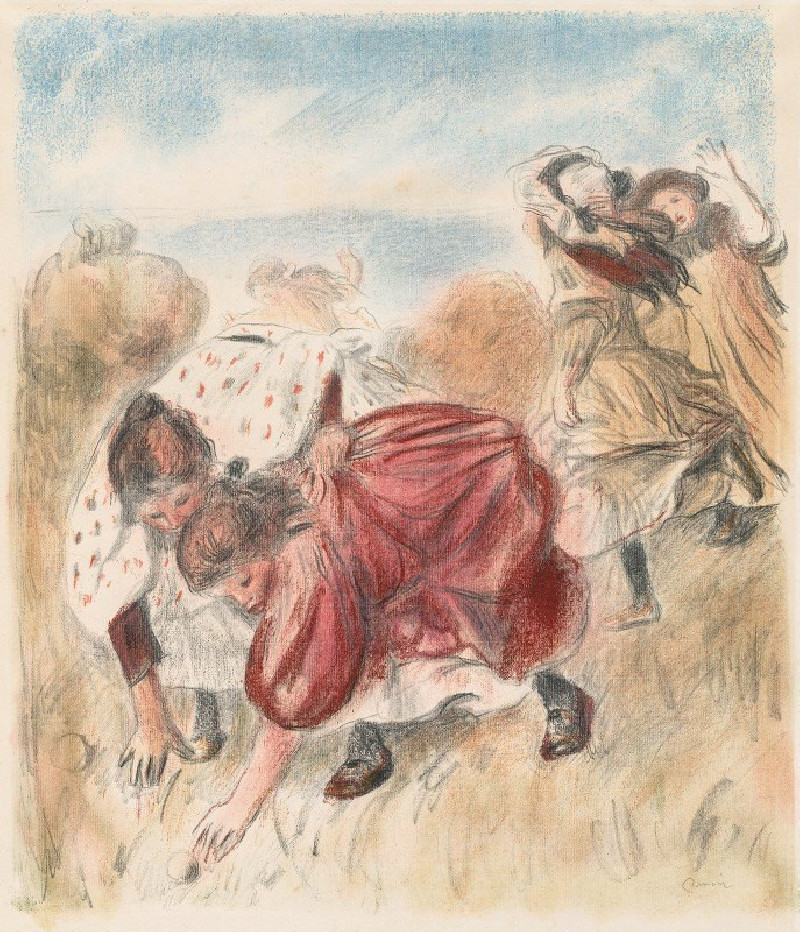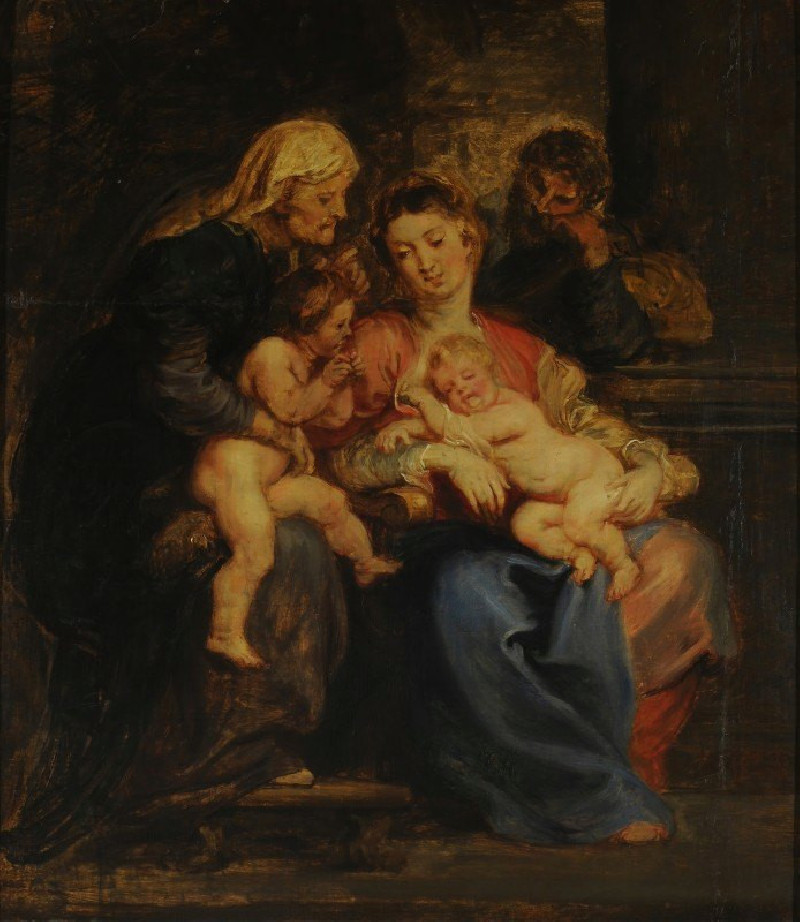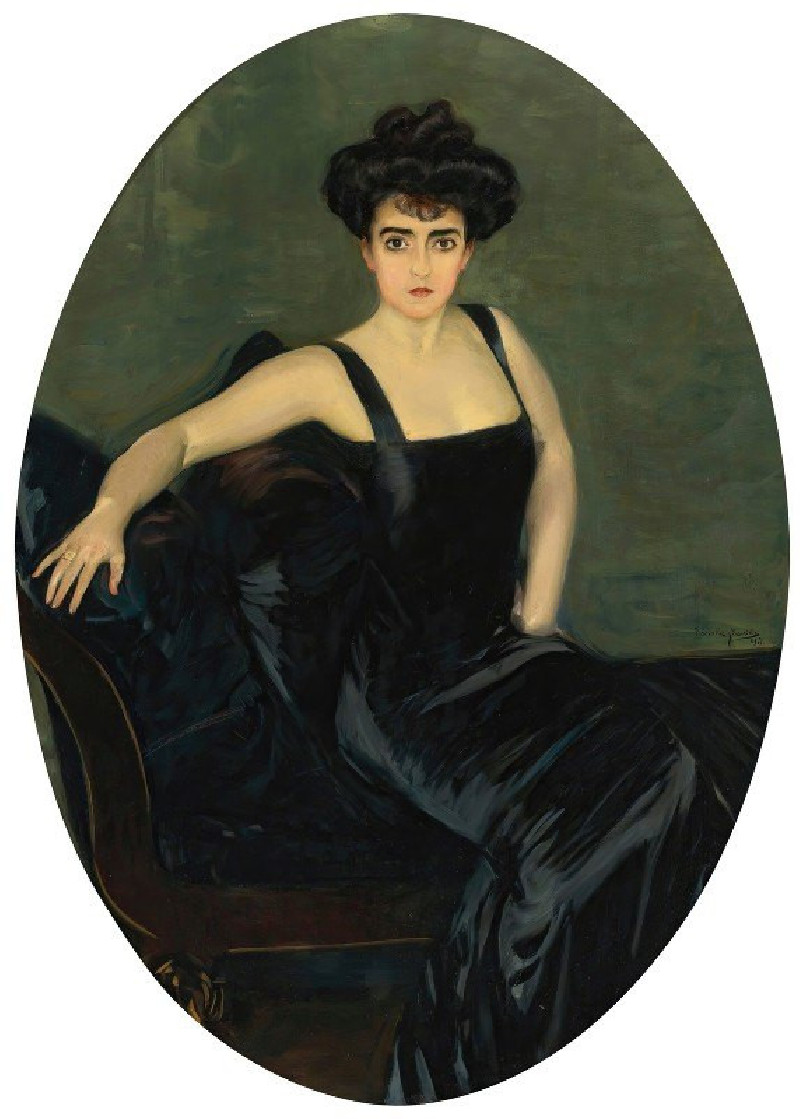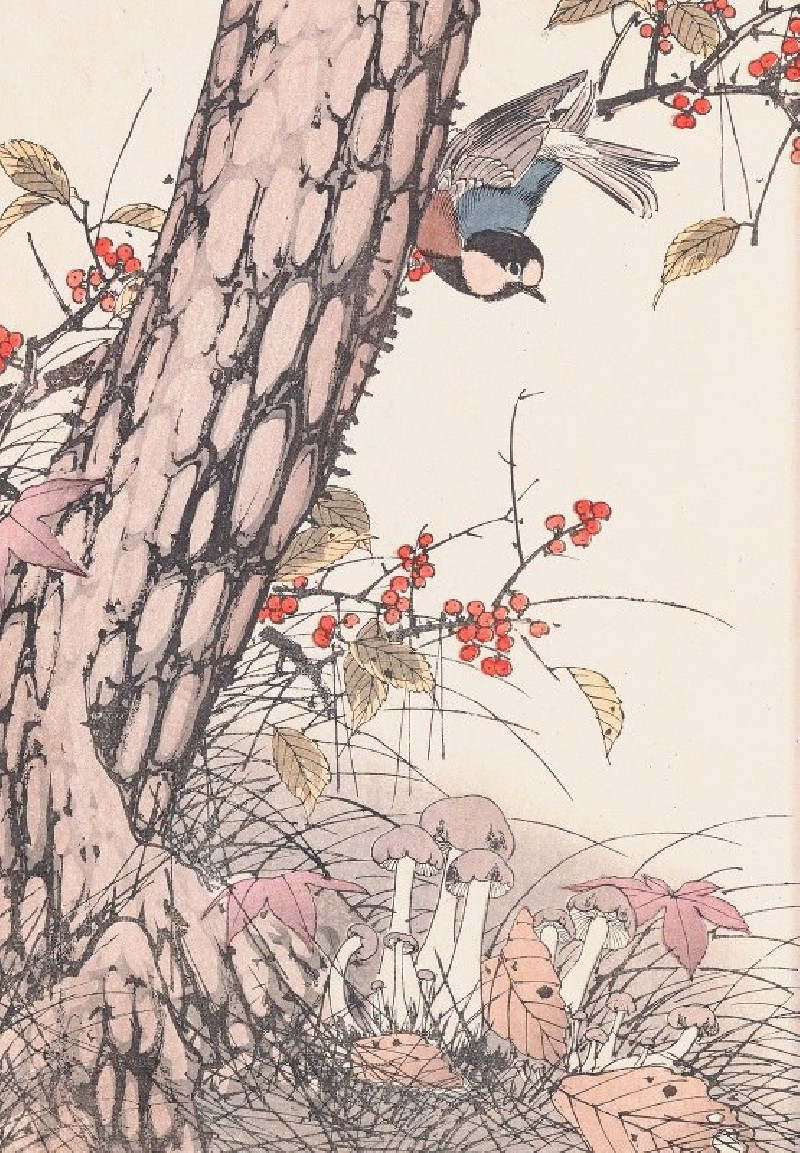A Street in Harborne (circa 1808)
Technique: Giclée quality print
Recommended by our customers
More about this artwork
David Cox, a revered name in the annals of British landscape art, beautifully captured an everyday glimpse of early 19th-century life in his watercolor painting "A Street in Harborne," circa 1808. This splendid piece offers viewers a snatch of history, enveloped in the soft, serene artistry typical of Cox's works.The painting brings to life a leafy street in Harborne, a historic area which now forms a suburb of Birmingham. Dominated by lush green trees that arch majestically over the street, the scene is framed with delicate brushwork reflecting the light and shadow of a quiet day.Centered in the painting is a quaint, peaceful road leading to distant, outlined buildings, suggesting the close-knit community of the times. Figures are sparingly scattered along the road, each rendered in a way that captures their movement and purpose. From an elegantly dressed woman to a figure walking a dog, each adds life and human touch to the serene setting.Cox's use of watercolor enlivens the scene, with warm autumnal tones layering the work and evoking a sense of tranquil simplicity. The broad strokes of green and brown suggest not just the foliage but also the interaction of light and nature, an element that Cox mastered throughout his career."A Street in Harborne" thus stands as a gentle, evocative remembrance of the past, its beauty lying not just in its historic value but also in its calm, poetic composition which invites the viewer to step back into a simpler time.
Delivery
Returns
David Cox (29 April 1783 – 7 June 1859) was an English landscape painter, one of the most important members of the Birmingham School of landscape artists and an early precursor of Impressionism.
He is considered one of the greatest English landscape painters, and a major figure of the Golden age of English watercolour.
Although most popularly known for his works in watercolour, he also painted over 300 works in oil towards the end of his career, now considered "one of the greatest, but least recognised, achievements of any British painter."
His son, known as David Cox the Younger (1809–1885), was also a successful artist.

